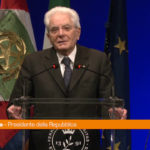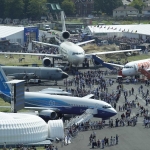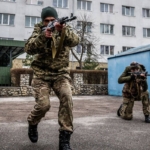With the enforcement of the nuclear deal in January, several economic sanctions -which have wreaked havoc on Iran’s economy for years- has been lifted, thus paving the way for its re-integration into the international economic competition. However, as the Expediency Council points out, the hostility of many countries is still alive, along with their desire to curb the country’s economic recovery. Likewise, some countries, for example some European partners, will have to gradually win back Iran’s trust towards them. In other words, Tehran bets again on the well-known economy of resistance strategy, which has taught the country to maximize the use of national resources, while minimizing vulnerability and damage caused by sanctions. This policy, indeed, allowed the Iranian economy to survive decades of isolation, still being (in terms of GDP) the second of the Middle East and the seventh in Asia.
[subscriptionform]
[level-european-affairs]
The openness towards foreign countries will be carefully planned: the aim is to strengthen key economic areas, while continuing to exploit the internal resources, which have proved to be productive, such as industrial infrastructure and the petrochemical industry. Hence, priority is given to investment from abroad, increasing export of non-oil products and to address the problem of foreign exchange reserves still frozen by sanctions. At a time when international attention is focused on fighting ISIS, Tehran is launching its economic “offensive”, paving the way for trade agreements especially with Asian and African countries.
Concerning import-export, Iran and Russia are considering the creation of a free trade zone, as Russian Energy Minister Alexsandr Novak recently announced. The first draft of the project sets metal and chemical products as the main objects of Russian exports to Iran; in return, Iran would provide fruit and vegetables up to one billion dollars, a significant increase compared to the current trade ($194 million).
Important achievements also with Vietnam. The two countries aim to increase their trade value from 350 million to 2 billion over the next five years, with investment projects in several sectors, i.e. agriculture, tourism, energy and technological innovations. In order to foster cooperation, their central banks have also signed a Memorandum of Understanding. Ongoing negotiations also with Turkey, Côte d’ Ivoire and other African countries, which are willing to enhance economic relations with the Islamic Republic. Iran’s achievements in energy, healthcare, technology and infrastructure make it an ideal partner to supply the needs of the African continent.
Two major projects are on the table in energy sector. The first concerns the construction of an undersea gas pipeline linking Iran to India: 1400 kilometers of infrastructure that will allow to bypass Pakistani exclusive economic zone, bringing up to 31.5 million cubic meters of gas per day in India. A big investment, about $ 4.5 billion, which confirms –and rewards- the good relations that the nations preserved even during the sanctions regime. The second new project is a scientific and technological cooperation between the Elettra Synchrotron of Trieste (Italy) and the Institute for Research in Fundamental Sciences in Tehran. Key points are the training of Iran’s scientific and technical personnel and the joint design of a new line of light, to be used both in the study of chemical and biological phenomena, and in industrial sectors.
Pakistan marks an important turning point in banking sector. As some sanctions are still in force, payment in dollars for products imported from Iran is not yet possible. Hence, Pakistani businessmen decided to open letters of credit (LCs) in euro rather than in the US currency. In this way, the American banks will be no longer the intermediate banks, but the European ones will clear the LCs.
To conclude, it seems that Iran has a clear economic strategy in mind. On the one hand, it focuses on internal resources, such as oil – Iran will begin to cooperate with other producing countries about freezing production only when the its output will reach the quota of 4 million barrels a day. On the other, it aims to strengthening key economic sectors, by intensifying relations with medium and big Asian powers, thus favoring them rather than Middle Eastern and Western countries, a clear sign that the distrust towards those who most benefited from sanctions is far from over.
Paola Fratantoni
[/level-european-affairs]







